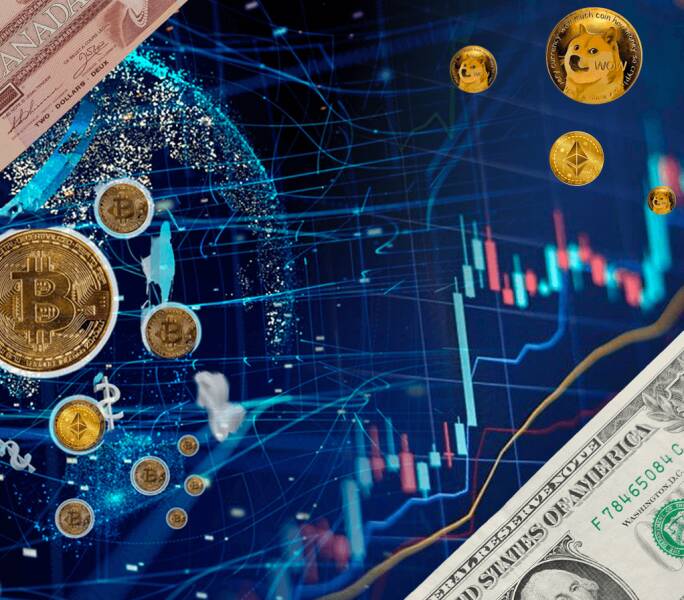As the world continues to evolve towards a more digital and interconnected era, the landscape of commerce is undergoing significant transformations. At the forefront of this revolution is Digital currency, a digital currency that has sparked both intrigue and debate since its inception. Understanding Digital currency's role and potential in the future of digital commerce is essential for anyone looking to stay ahead in the rapidly changing market.
The Rise of Digital currency
Digital currency, the first and most well-known Digital currency, was introduced in 2009 by an anonymous person or group known as Satoshi Nakamoto. This decentralized digital currency operates on a peer-to-peer network without the need for a central authority, such as a bank or government. Digital currency transactions are verified by network nodes through Digital graphy and recorded in a public distributed ledger called a blockchain.
Understanding Digital currency
The term "Digital currency" refers to digital or virtual currencies that use Digital graphic techniques for security. Unlike traditional currencies issued by governments, Digital currencies are decentralized and often rely on blockchain technology to maintain transparency and security. Digital currency's success has paved the way for numerous other Digital currencies, such as Ethereum, Ripple, and Litecoin, each with its unique features and uses. You can also explore Proficator for further information.
Digital currency's Impact on Digital Commerce
Benefits of Digital currency in Digital Commerce
Digital currency offers several advantages that make it an attractive option for digital commerce. One of the most significant benefits is the elimination of intermediaries. Traditional financial transactions often involve banks, payment processors, and other intermediaries that add fees and processing times. Digital currency transactions, on the other hand, are direct and often incur lower fees, making them faster and cheaper.
Digital currency also offers global accessibility. With the internet, anyone can access Digital currency, regardless of their location or financial status. This inclusivity can drive financial empowerment and support economic activities in regions with limited access to traditional banking systems.
Challenges and Considerations
Despite its potential, Digital currency faces several challenges that must be addressed for it to become a mainstream method of digital commerce. One of the primary concerns is its volatility. Digital currency's price can fluctuate dramatically within short periods, making it risky for both consumers and businesses. This volatility can hinder its adoption as a stable medium of exchange.
Regulatory uncertainty is another significant challenge. Different countries have varying approaches to regulating Digital currency and other Digital currencies, ranging from complete bans to full acceptance. This lack of uniformity creates uncertainty for businesses and consumers alike, complicating the integration of Digital currency into global commerce.
Innovations and Future Prospects
Technological Advancements
Technological advancements are continually shaping the future of Digital currency and digital commerce. One promising development is the integration of smart contracts, which are self-executing contracts with the terms of the agreement directly written into code. Platforms like Ethereum have popularized smart contracts, and there is potential for Digital currency to adopt similar functionality, enhancing its utility in digital commerce.
Adoption by Businesses and Consumers
For Digital currency to become a staple in digital commerce, widespread adoption by both businesses and consumers is essential. Many major companies, including Tesla, Microsoft, and Overstock, have already started accepting Digital currency as a form of payment. This trend is likely to continue as more businesses recognize the benefits of accepting Digital currency, such as lower transaction fees and access to a global customer base.
Digital currency and Financial Inclusion
One of the most transformative aspects of Digital currency is its potential to promote financial inclusion. In many parts of the world, access to traditional banking services is limited or nonexistent. Digital currency can provide an alternative financial system that is accessible to anyone with an internet connection. This capability can empower individuals in underserved regions, enabling them to participate in the global economy.
Empowering the Unbanked
Digital currency can particularly benefit the unbanked population, which comprises over 1.7 billion people worldwide. These individuals often rely on informal financial systems that are inefficient and insecure. Digital currency offers a secure, transparent, and efficient alternative that can facilitate savings, remittances, and other financial activities.
Microtransactions and Economic Opportunities
Digital currency also enables microtransactions, which are small transactions that traditional financial systems often find uneconomical to process. This capability can open up new economic opportunities, especially in developing countries. For example, content creators and freelancers can receive payments directly and instantly, without the high fees associated with international transactions.
Environmental Concerns and Sustainability
A critical issue surrounding Digital currency is its environmental impact. Digital currency mining, the process by which new coins are created and transactions are verified, requires significant computational power and energy consumption. This has raised concerns about Digital currency's sustainability and its contribution to carbon emissions.
Green Initiatives and Solutions
In response to these concerns, several initiatives aim to make Digital currency more environmentally friendly. Some mining operations are shifting to renewable energy sources, such as wind, solar, and hydroelectric power. Additionally, research is ongoing into developing more energy-efficient mining technologies and consensus algorithms that could reduce Digital currency's environmental footprint.
Conclusion
Digital currency's journey from a niche digital currency to a potential cornerstone of digital commerce is a testament to its transformative potential. While challenges such as volatility, regulatory uncertainty, and environmental impact remain, ongoing innovations and increasing adoption by businesses and consumers paint a promising picture for Digital currency's future. As technology advances and the global economy continues to digitalize, Digital currency is poised to play a significant role in shaping the future of digital commerce, offering new opportunities for financial inclusion, efficiency, and innovation.


